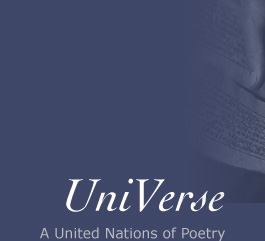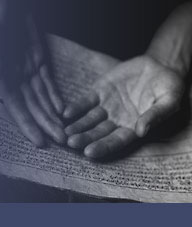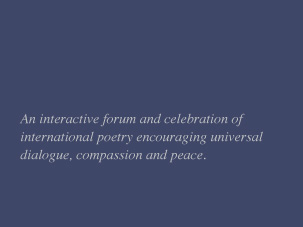| |
 |
 |
 |
 Mario Susko, a witness and survivor of the war in Bosnia, received his M.A. and Ph.D. from SUNY Stony Brook in the 1970s and moved back to the US in 1993. A three-time Fulbright scholar, he has taught at the University of Sarajevo, but has lived more than half of the past 36 years in the US. He is currently an Associate Professor in the English Department at Nassau Community College in Garden City, NY. Mario Susko, a witness and survivor of the war in Bosnia, received his M.A. and Ph.D. from SUNY Stony Brook in the 1970s and moved back to the US in 1993. A three-time Fulbright scholar, he has taught at the University of Sarajevo, but has lived more than half of the past 36 years in the US. He is currently an Associate Professor in the English Department at Nassau Community College in Garden City, NY.
Mario Susko has published 75 books, 25 of which are volumes of his own poems. He has also edited and translated several anthologies and is the recipient of many awards, including the 1997 and 2006 Nassau Review Poetry Award, the 1998 Premio Internazionale di {Poesia e Letteratura "Nuove Lettere" (Naples, Italy), the 2000 Tin Ujevic Award for Versus Exsul for the best book of poems published in Croatia in 1999, and the 2003 SUNY Chancellor's Award for Excellence in Scholarship and Creative Activities. His poem "Conversion," published and nominated by "Dream Catcher" (UK), was short-listed for the 2004 Forward Poetry Prize. "The Paumanok Review", "Nassau Review", and "Branches Quarterly" have nominated his poems for the Pushcart Prize, and "The Interpreter's House" (UK) and "Dream Catcher" for the 2006 Forward Prize in the best single poem category.
Mario Susko is also known as an editor and a translator, having translated novels by Saul Bellow, William Styron, Bernard Malamud and James Baldwin. He has also edited and translated stories by Donald Barthelme, and poems by Theodore Roethke and E.E. Cummings, among others. His most recent books include the anthology of modern Jewish-American short stories "A Declaration of Being" (Meandar, 2006), which he co-edited with Myron Schwartzman and translated into Croatian; a book of selected and new poems, "Life Revisited" (Allahabad, India, 2006); and his 25th book of poems, the Croatian edition of "Eternity on Hold" (Meandar, 2006), originally released in English by Turtle Point Press in 2005. His new poetry collection, "Closing Time," will be released in April 2008 by Harbor Mountain Press and will be available wherever HMP’s books are sold.
Read more about the culture and history of Bosnia-Herzegovina.
Teach this Poet:
Life
Beyond
|
 |
 |
English version
Life
Grandmother and I shared a small crammed room.
I slept on the sofa, she, on a high, white bed.
She died when I was thirteen years old.
It was a cold, gray January afternoon,
the kind that made your nostrils glue together
and the eyes burn from the coal smoke
belched by asthmatic chimneys in the street.
I came back from school and found my aunt
sitting on a rickety chair in the hall.
She pressed my stiff hands against her cheeks,
whispering, You’ll be alone tonight, my dear,
but I thought only of her soft velvet skin.
She took me into the room and to the bed
where my grandmother lay in her long blue dress,
with a small bouquet of satin violets on the pillow
and two wavering candles on the marble top table.
The curtains were drawn, the wall mirror covered.
It was grandma’s shoes that kept me transfixed,
pointed black caps sticking up like crow’s beaks,
and when my aunt went to close the cupboard door
which always squeaked open mysteriously on its own
I spat silently three times to chase away bad luck.
The cupboard was a giant magic hat, things inside,
never seen, like a gold rabbit’s foot she smuggled
through the German checkpoint, an endless source
of her night stories. After each she’d kiss me
and say softly, Adesso dormi e fai un bel sogno.
My mother was to arrive by a late train, so I
had to sleep at my place. I stood guard, the major
in the third room, requisitioned for war veterans
by the commissariat, listening to patriotic airs.
I pretended to be asleep when mother tiptoed in.
I tried to remember every song my grandmother sang
to me in Italian, about her homeland, lost love,
and that morning I awoke in the frigid room, alone,
with a shameful erection. I propped myself up,
looking at her waxed face, and saw her wink at me.
Two days later, I raided the cupboard, digging
out a pistol lighter, cancelled bank notes, letters,
sepia photos of sailing ships, a cracked telescope,
an old broken compass; I got so angry I ran down
to the shed in the yard, dragged out my treasure,
a wobby corroding bike with no brakes, and rode it
around the oak tree until I was blinded by tears.
Translated by the author and reprinted with permission from
Life Revisited: New and Selected Poems by Mario Susko, cyberwit.net,
Allahabad, India, 2006.
Teach this Poem
- This poem contains at least one talisman—the gold rabbit’s foot that the grandmother smuggled through the German checkpoint. Poems themselves are like talismans. They are similarly portable and magical. After reading this poem aloud, put it aside and recall all the concrete images and sensory and details that you can from the poem. Note how Mario Susko engages the senses in his descriptions and ask yourself what his chosen details made you feel. As a class, you may want to make a list of the poem’s sensory details—say them aloud or write them in your notebook or on a board. This list can then become a springboard for your own list of sensory details and storied objects. After making a your own list, note which object or detail is taking your attention. That is probably the one that has a poem waiting to be written around it. Does the object—like the objects in the grandmother’s cupboard—tell the story of a life? Does the object hold some mystery? Is it one you still have or one you lost? Write a poem incorporating this object and others.
- Powerful poems enact a change in the speaker. The speaker at the end of the poem is different from the speaker who began the poem, and the reader and speaker experience this change together. Discuss how the speaker in Mario Susko’s poem, “Life” has changed. Why does he feel “angry” when he finally goes through his grandmother’s cupboard? How can we imagine that his life will be different now that his grandmother is gone?
- The first three lines of this poem are end-stopped lines—that is, they contain whole sentences or phrases, unlike enjambed sentences that break phrases to carry over to the next line. What kind of tone do these end-stopped lines create in the beginning of the poem? How is that tone changed when sentences begin flowing over the lines? And how to these formal decisions support the poem’s meaning?
- Did you recognize the language in the fifth stanza of the poem, and can you translate it? We know by the end that the grandmother is Italian and has lived through a difficult history to arrive in the “small crammed” room with the speaker. How does her past contribute to her grandson’s feelings about her? Do you have grandparents who speak different languages from you? If so, how does this affect your relationship? What kind of relationship do you think this grandmother and grandson had?
- One function of poetry is to commemorate or eulogize the people we love and have lost. Read this poem along with W.S. Merwin’s poem “Yesterday” and Li-Young Lee’s poem, “Have You Prayed?” What are these poets different approaches to writing about loss? Now write a poem about someone you have loved and lost. You may begin, as Mario Susko did, with the scene of the person’s death. Or you may begin, as Li-Young Lee did, by hearing something that person said to you once. You may also read this poem alongside “The Rites for Cousin Vit” by Gwendolyn Brooks (available at www.tcsn.net/jackie/Archive/gwendolyn_brooks.htm) and discuss how the poets paint a portrait of the deceased through well-chosen details.
|
|
 |
 |
English version
Reconstruction
Mother will sit at the table
in the cold white kitchen,
waiting for me to bring her
my book in which I write
how I dug up her bones
to take them back home.
She’ll be there, reconstructed,
like the faces of the houses,
with me wondering which tree
in the park that will never sprout
twigs again was her coffin.
My hand will smell of dirt
and rotten leaves as I turn
the pages looking for some proof
which is not a painted-over truth.
Knowing where she truly is perhaps
I’d forget where I must be.
She’ll say, I’ve never understood
any of your poems, and I’ll see myself
closing the book gently in her lap,
pretending I have the wrong page,
the wrong house and the wrong city.
Translated by the author and reprinted with permission from
Life Revisited: New and Selected Poems by Mario Susko, cyberwit.net,
Allahabad, India, 2006. |
 |
 |
English version
Conversion
I came upon a man in black who sat on a tank,
tending his sheep that grazed impassively
around the craters and among dead bodies.
I am looking for my son, I said squinting.
The bullets in his cartridge belt slung
over his shoulder shone in the sun like teeth.
He smiled, chewing a cigarette to the other
corner of his mouth, and motioned with his hand
to the field. Plenty to choose from, he said.
The sheep were moving away towards the shade
of a big oak tree, the bodies following
on all fours. I strained my ear to hear the bell
I knew. He slid down and stared at me.
Is that your stomach growling, he asked.
I am just trying to find my son, I whispered.
You want to shoot one? He spat out the butt
and stomped it with his boot that was like my son’s.
We are talking about some good meat, he grinned.
The shirt looked familiar, but I couldn’t tell.
My sheep started to fan out and I suddenly heard
a dog yelp behind me. He whistled, the sound
thin and piercing, making the bodies stop.
I felt the sweat run down my buttocks and legs,
as if someone was punching holes in my ribs.
Have you seen my son, I uttered, not knowing
whether any sound left my mouth. You never had
a son, he yelled and cocked his submachine gun.
The boots were the same and so was the shirt.
And the Mickey Mouse watch on his wrist was the same.
Tell you what, he said and laughed. I’ll be your son.
Translated by the author and reprinted with permission from
Life Revisited: New and Selected Poems by Mario Susko, cyberwit.net,
Allahabad, India, 2006.
|
 |
 |
English version
Beyond
Eternity is God’s oblivion, you said,
a faint smile crossing your lips.
That’s why we are all left with history,
not to forget what we cannot be.
you were taping your grandmother’s bracelet,
a gold arabesque snake, onto your abdomen,
and I could see four or five hairs
curling upward, as if trying to explore
the air above the waistband of your panties,
two silver rings you’d already parted with
lying like eyeballs on the bare kitchen table.
Futile words and useless acts, I thought,
we needed to assuage the fear. Not
of dying but of living the absence of living,
like a frog I once saw on television
that suspends its being through the winter.
the following morning you left the city,
your face behind a fogged bus window
a featureless apparition, forcing me
to feel my chapped lips and blow you a kiss.
two days later I managed to climb
into the attic of an abandoned building
and peer stupidly through my binoculars
at the checkpoint, praying that I see
your rings on the guards fingers,
for that would have meant you were safe,
somewhere beyond our crazed reasoning.
a figure that leaned in perfect harmony
with his ak-47 against a barrel
smoked a cigarette, his derisive stare
telling me he somehow sensed I was there,
then stretched his arms, and I saw only
two blackleathered fists up in the air.
Translated by the author and reprinted with permission from
Life Revisited: New and Selected Poems by Mario Susko, cyberwit.net,
Allahabad, India, 2006.
Teach this Poem
- This poem may be understood as a love poem that intersects with a terrible history. Compare its moments of tenderness with its moments of violence. What do they have in common, and how do they differ? For instance, we see silver rings, chapped lips and a blown kiss—all evidence of a bare body—but then, at the end of the poem, we see “blackleathered fists.”
- Read this poem along with Eavan Boland’s “Quarantine” and Parneshia Jones’ “Love.” After you read these poems, you may discuss what true love does in the face of injustice and hardship.
- In addition, you may use Mario Susko’s poem as an invitation to learn more about the war and genocide in Bosnia in the 1990s. You may use Eavan Boland’s poem to learn about the famine in Ireland, which reduced the Irish population by 25 percent between 1845 and 1852. And you may use Parneshia Jones’ poem to learn more about the United States’ enslavement of millions of Africans and African Americans, which lasted legally until 1865.
- Using Mario Susko’s and Parneshia Jones’ poems as models, write a poem in the voice of someone whose love and happiness has been compromised by history. They should be addressing their poem to a “you” whom they love. Include vivid sensory details and distinctive turns of phrase that will help your reader to identify with the speaker of your poem.
- This poem begins with a compelling quote by the woman—“Eternity is God’s oblivion” but such words are felt as “futile” by the speaker. Why does he react against words in this poem? Why do you think the woman is waxing philosophical at such a dire time? You may want to begin a freewrite—and then a poem—with a quote that you read or heard. You can put it in the first line, as Mario Susko did here, or you can put it before the poem, which is called an epigraph. You can use your poem to explore the quote, to hinge it to a memory, or to support or contradict its idea. Here are some similar ideas for teachers: find quotations by famous thinkers and writers and print them out on strips of paper like fortunes. Have students draw a quote from a hat, then ask them to do a freewrite in response. Or have students jot down five things someone they know has said to them. The person could be a mother, boyfriend, brother or stranger and the quotes can be whole sentences or just fragments. They can choose one to begin a poem, or mix them up with classmates and write from a quote they have never heard before.
|
|
 |
 |
|
 |
|





